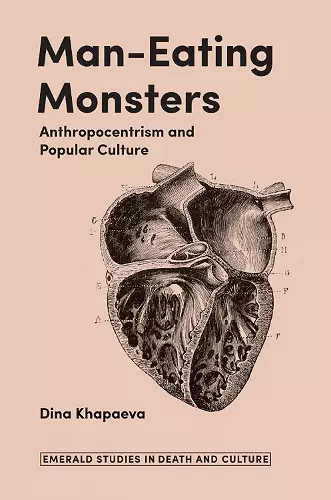Man-Eating Monsters
Anthropocentrism and Popular Culture
Format:Hardback
Publisher:Emerald Publishing Limited
Published:11th Nov '19
Currently unavailable, and unfortunately no date known when it will be back

What role do man-eating monsters - vampires, zombies, werewolves and cannibals - play in contemporary culture? This book explores the question of whether recent representations of humans as food in popular culture characterizes a unique moment in Western cultural history and suggests a new set of attitudes toward people, monsters, animals, and death.
This volume analyzes how previous epochs represented man-eating monsters and cannibalism. Cultural taboos across the world are explored and brought into perspective whilst we contemplate how the representations of humans as commodities can create a global atmosphere that creeps towards cannibalism as a norm.
This book also explores the links between the role played by the animal rights movement in problematizing the difference between humans and nonhuman animals. Instead of looking at the relations between food, body, and culture, or the ways in which media images of food reach out to various constituencies and audiences, as some existing studies do, this collection is focused on the crucial question, of how and why popular culture representations diffuse the borders between monsters, people, and animals, and how this affects our ideas about what may and may not be eaten.
Contributed by language and literature, sociology, history, religion, and Gothic studies scholars from North America, the six essays in this collection explore the relationship between monstrosity and food, particularly the role of human-eating monsters in Western culture; how contemporary monsters differ from their cultural predecessors; the relationship between the rising interest in cannibals and the fascination with food as a subject of research and popular plot catalyst; and whether these new cultural developments influence the basic food taboo of eating humans. They consider the question of whether recent representations of humans as food in popular culture and academic discourse signify new attitudes towards humans, monsters, and animals, and the cultural patterns that explain why cannibals, vampires, and zombies have emerged as a new cultural idols at the turn of the 21st century. Chapters address the cultural and intellectual context that has made pop culture representations of people as food possible; monsters and their surrounding philosophical tradition; what can be regarded as monstrous food and how the quality of being monstrous may add to the recognition of food as delicious; the use of food in Bram Stoker's Dracula; cannibalism in Soviet literature of the 1930s, particularly Andrey Platonov's Rubbish Wind; and how the figure of the zombie in The Walking Dead and other television shows questions the idea of the human. Distributed in North America by Turpin Distribution. -- Annotation ©2019 * (protoview.com) *
ISBN: 9781787695283
Dimensions: 229mm x 152mm x 13mm
Weight: 311g
136 pages